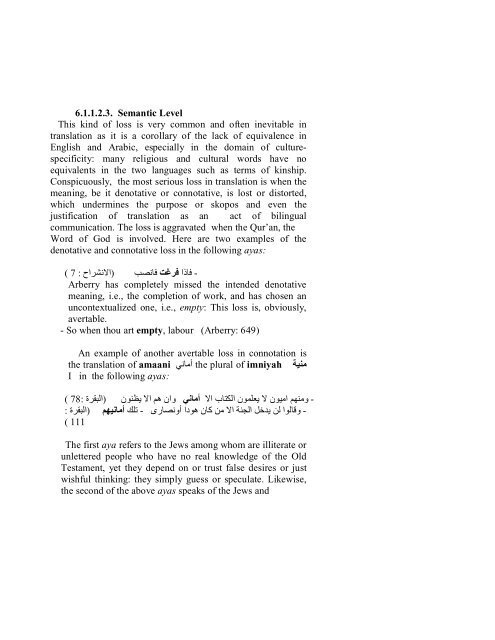424_2061_A.B.
424_2061_A.B.
424_2061_A.B.
- No tags were found...
Create successful ePaper yourself
Turn your PDF publications into a flip-book with our unique Google optimized e-Paper software.
6.1.1.2.3. Semantic LevelThis kind of loss is very common and often inevitable intranslation as it is a corollary of the lack of equivalence inEnglish and Arabic, especially in the domain of culturespecificity:many religious and cultural words have noequivalents in the two languages such as terms of kinship.Conspicuously, the most serious loss in translation is when themeaning, be it denotative or connotative, is lost or distorted,which undermines the purpose or skopos and even thejustification of translation as an act of bilingualcommunication. The loss is aggravated when the Qur’an, theWord of God is involved. Here are two examples of thedenotative and connotative loss in the following ayas:( 7 :) -Arberry has completely missed the intended denotativemeaning, i.e., the completion of work, and has chosen anuncontextualized one, i.e., empty: This loss is, obviously,avertable.- So when thou art empty, labour (Arberry: 649)An example of another avertable loss in connotation isthe translation of amaani the plural of imniyah I in the following ayas:( 78:) -:)( 111 - -The first aya refers to the Jews among whom are illiterate orunlettered people who have no real knowledge of the OldTestament, yet they depend on or trust false desires or justwishful thinking: they simply guess or speculate. Likewise,the second of the above ayas speaks of the Jews and87
















